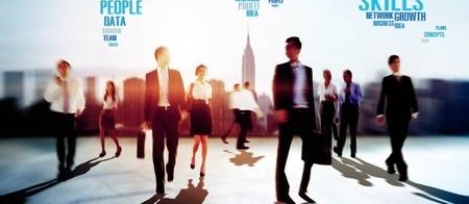December 21, 2016
Employee retention and engagement was top of mind for employers this year 0
 Employee retention was the top workforce management challenge in 2016, claims a survey by the Society for Human Resource Management (SHRM), with almost one-half of surveyed organizations (46 percent) citing it as a top challenge in 2016. Other top workforce management challenges for at least one-third of organizations were: employee engagement (36 percent), recruitment (34 percent) and succession planning (33 percent). SHRM’s survey Influencing Workplace Culture Though Employee Recognition and Other Efforts, which was produced in collaboration with and commissioned by Globoforce, found that as employers look for ways to deal with the challenges of low employee retention and high turnover, more organizations are tying employee recognition efforts to their core values.The majority of respondents indicated that their employee recognition programs had positive impacts on employee engagement, workplace culture, retention and employee happiness.
Employee retention was the top workforce management challenge in 2016, claims a survey by the Society for Human Resource Management (SHRM), with almost one-half of surveyed organizations (46 percent) citing it as a top challenge in 2016. Other top workforce management challenges for at least one-third of organizations were: employee engagement (36 percent), recruitment (34 percent) and succession planning (33 percent). SHRM’s survey Influencing Workplace Culture Though Employee Recognition and Other Efforts, which was produced in collaboration with and commissioned by Globoforce, found that as employers look for ways to deal with the challenges of low employee retention and high turnover, more organizations are tying employee recognition efforts to their core values.The majority of respondents indicated that their employee recognition programs had positive impacts on employee engagement, workplace culture, retention and employee happiness.

















 Whether or not you raise an eyebrow every time you hear about the need for employee engagement, there is a growing body of research which links engagement to performance.
Whether or not you raise an eyebrow every time you hear about the need for employee engagement, there is a growing body of research which links engagement to performance. 
 In America at least, the great symbol of corporate conformity is the office cubicle. Satirised in the Dilbert cartoons and a staple in any movie about the degrading aspects of modern working life, the cubicle provides a perfect shorthand way of portraying an individual crushed by the corporate jackboot. Yet what these things miss is the propensity of people to personalise their surroundings and claim a space as their own, even if only for the short time they may be there. This seems to be particularly the case when it comes to office design and so we were much taken with
In America at least, the great symbol of corporate conformity is the office cubicle. Satirised in the Dilbert cartoons and a staple in any movie about the degrading aspects of modern working life, the cubicle provides a perfect shorthand way of portraying an individual crushed by the corporate jackboot. Yet what these things miss is the propensity of people to personalise their surroundings and claim a space as their own, even if only for the short time they may be there. This seems to be particularly the case when it comes to office design and so we were much taken with 













November 25, 2016
Workplace professionals should look to the consumer sector for boosting engagement 0
by Jeff Flanagan • Comment, Facilities management, Workplace, Workplace design
More and more businesses are recognising the power of the workplace experience to drive employee performance and engagement. Global brand Airbnb, for example, has now renamed its head of human resources as “chief employee experience officer.” This is good news for workplace design and management professionals. We are well placed to capitalise on this shift in business opinion, but if we want to make a tangible impact, we need to bring practical solutions to the table. First and foremost, these need to be backed up by research. There have been few studies specifically into what makes a healthy and productive work environment. However, there are a number of research projects that examine how a human being’s surroundings impact their mood and behaviour, and in particular how consumer environments shape customers’ perception of and engagement with a brand. As workplace professionals, we can learn a great deal from this consumer research and this is why workplace design and management teams should look towards consumer-facing industries for inspiration.
(more…)